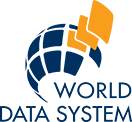8 Sep 2023 | Member Highlights
The World Data Centre for Soils (WDC-Soils) is a member of the World Data System and a leading provider of soil-related collections and information services. WDC-Soils is hosted by ISRIC – World Soil Information, an independent foundation that serves as a custodian of global soil information.
WDC-Soils’ mission is to ensure the long-term preservation and archiving of soil specimens, country documentation, and geo-referenced databases. Many of these resources are available freely online and can be used to support studies of environmental, societal, and economic sustainability.
WDC-Soils follows clear procedures and workflows for safeguarding, quality-assessing, standardizing, and serving soil data to the world, using FAIR principles. WDC-Soils also promotes open science, data literacy, and data stewardship among its stakeholders and partners.
WDC-Soils is a valuable member of the World Data System community. It is a leader in the field of soil science and its work is making a real difference in the world. Here are some of WDC-Soils’ accomplishments:
- Developed the ISRIC Soil Data Hub: a web portal that provides access to various soil data products and services from ISRIC and other sources.
- Created the SoilGrids system: a global gridded soil information system that provides high-resolution maps of soil properties and classes.
- Launched the Global Soil Information Facilities project: a collaboration between ISRIC and other partners to develop a global infrastructure for soil data sharing and integration.
Operating across disciplines and borders, the World Data Centre for Soils liberates the potential of soil data to provide insights into local, regional, and global processes. Their commitment as a World Data System member to offering state-of-the-art soil data services propels innovative soil science with far-reaching benefits. Through a ceaseless focus on improvement, they expand access to soil information for researchers worldwide.
8 Sep 2023 | Member Highlights

The World Glacier Monitoring Service (WGMS) has been a Regular member of the World Data System since 13 December, 2011. WGMS is a leading provider of standardized data on glacier fluctuations. WGMS collects and disseminates data on changes in mass, volume, area, and length of glaciers with time, as well as statistical information on the distribution of perennial surface ice in space.
WGMS’s mission is to support the understanding and assessment of the effects of climate change on glaciers and ice caps, and their implications for water resources, sea level, and natural hazards. WGMS works under the auspices of several international organizations, such as the International Association of Cryospheric Sciences (IACS), the International Union of Geodesy and Geophysics (IUGG), the International Science Council (ISC), the United Nations Environment Programme (UN Environment), the United Nations Educational, Scientific and Cultural Organization (UNESCO), and the World Meteorological Organization (WMO).
WGMS follows clear procedures and workflows for safeguarding, quality-assessing, standardizing, and serving glacier data to the world, using FAIR principles. WGMS also promotes open science, data literacy, and data stewardship among its network of scientists and data providers.
Here are some of WGMS’s accomplishments:
The World Glacier Monitoring Service nourishes the global science community through its dedication to compiling comprehensive glacier data and promoting its use to understand worldwide environmental changes. As an engaged member of the World Data System, WGMS evolves continuously to broaden its services and ensure they speak to emerging research needs and societal challenges.
1 Sep 2023 | News
FOR IMMEDIATE RELEASE
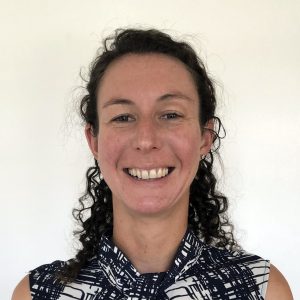
Dr. Claire Rye Appointed as Co-Chair for the World Data System Early Career Researchers Network
OAK RIDGE, TN, USA – 1 September 2023 – The World Data System’s International Program Office (WDS-IPO) is delighted to announce the appointment of Dr. Claire Rye as the new Co-Chair for the World Data System Early Career Researchers Network (WDS-ECR Network), joining Dr. Lianchong Zhang and Dr. Maja Dolinar, the current Co-Chairs. With a Ph.D. in organic chemistry and extensive experience in research data management, Dr. Rye brings a wealth of knowledge and skills to support the WDS-ECR Network’s vision and goals.
Dr. Rye is a Product Manager at New Zealand eScience Infrastructure (NeSI) based out of the University of Auckland. She is responsible for the National Data Transfer Service and works across the Aotearoa Genomics Data Repository and Rakeiora Pathfinder projects, looking at research data management and data lifecycle across NeSI.
Dr. Rye’s interest in open science, balanced with CARE principles (Collective benefit, Authority to control, Responsibility, Ethics) and Indigenous Data Sovereignty, and passion for data stewardship and metadata aligns perfectly with the WDS-ECR Network’s mission to foster a community of early career researchers who are interested in data-related topics and challenges. Moreover, Dr. Rye’s expertise in working with diverse stakeholders and developing practical approaches for data cultures, practices, and infrastructures will enhance her ability to collaborate within the global research community.
Dr. Maja Dolinar and Dr. Lianchong Zhang congratulate Dr. Rye on her appointment and express their confidence in her exceptional qualifications. Her appointment signifies the WDS-ECR Network’s dedication to advancing open science and empowering early career researchers with opportunities for networking, learning, and professional development.
“I am honored to join the WDS-ECR Network as a Co-Chair,” says Dr. Claire Rye. “Together with Dr. Lianchong Zhang and Dr. Maja Dolinar and the WDS team, we will continue to build a vibrant and inclusive network that supports early career researchers in their data-related endeavors.”
About the World Data System Early Career Researchers Network (WDS-ECR Network)
The World Data System Early Career Researchers Network is an initiative by the World Data System that aims to create a platform for early career researchers to exchange ideas, share experiences, and collaborate on data-related topics and challenges. The WDS-ECR Network organizes various activities such as webinars, workshops, mentoring programs, and social events to foster a sense of community and belonging among its members.
For more information about the WDS-ECR Network, please visit www.worlddatasystem.org/early-career-researchers-network.
Media Contact: Vinnie Bernabeo, Communications Specialist vbernabe@utk.edu
9 Aug 2023 | News
FOR IMMEDIATE RELEASE
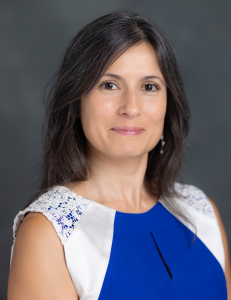
Introducing Daniela Santos Oliveira: The New Program Manager for the World Data System International Program Office
OAK RIDGE, TN, USA – 9 August 2023 – The World Data System’s International Program Office (WDS-IPO) proudly announces the appointment of Dr. Daniela Santos Oliveira as the new Program Manager, joining the dynamic team led by Dr. Suzie Allard, Principal Investigator, and Meredith Goins, Executive Director. With a Ph.D. in Speech Science and a successful track record in managing a developmental psychology research lab, Daniela brings a unique blend of research expertise, leadership, and communication skills to propel the WDS-IPO’s mission forward.
Throughout her distinguished career as a lab manager, Daniela demonstrated exceptional proficiency in overseeing scientific operations, efficiently coordinating participant recruitment, experiment design, data collection, and analysis. Her expertise in maintaining smooth workflows, fostering strong team cooperation, and meeting critical project milestones ensures a seamless integration into the WDS-IPO’s various initiatives.
Daniela’s passion for open science aligns perfectly with the WDS’s commitment to promoting unrestricted access to invaluable research data worldwide. Moreover, Daniela’s experience in working with various stakeholders and navigating university and government compliance policies further enhances her ability to collaborate effectively within the global research community.
Dr. Suzie Allard and Meredith Goins, on behalf of the WDS-IPO leadership team, express their confidence in Daniela’s exceptional qualifications, which encompass project management proficiency and a comprehensive understanding of academia. Her appointment signifies the WDS’s dedication to advancing open science and empowering researchers with unfettered access to critical data resources.
“I am thrilled to join the esteemed team at the World Data System’s International Program Office,” says Daniela Santos Oliveira. “Together, we will continue to drive the frontiers of scientific research by fostering a robust data ecosystem and facilitating global collaboration.”
About the World Data System (WDS)
The World Data System (WDS) is an initiative by the International Science Council (ISC) that champions long-term data stewardship and universal access to scientific data across various fields of study. The WDS actively supports scientific research by facilitating reliable data services and preserving datasets of the highest quality, while fostering strong ties with the global research community.
For more information about the World Data System, please visit www.worlddatasystem.org.
Media Contact: Vinnie Bernabeo, Communications Specialist
vbernabe@utk.edu
25 Jul 2023 | Member Highlights
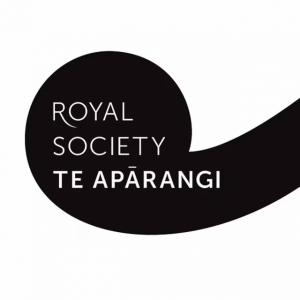
The Royal Society Te Apārangi is a scientific organization that promotes the advancement of science and technology in New Zealand. The Society has a long history of supporting data science research and education.
In recent years, the Society has made a concerted effort to promote the use of data science for the public good. The Society has developed a number of initiatives to help New Zealanders understand and use data science, including:
- The Data Science for New Zealand website, which provides resources and information on data science for the public
- The Data Science for Good Challenge, which encourages New Zealanders to use data science to solve real-world problems
- The Data Science for Public Policy workshop series, which provides training for New Zealand policymakers on how to use data science
The Royal Society Te Apārangi’s work on data science is making a real difference in New Zealand. The Society’s initiatives are helping to raise awareness of data science, and they are providing New Zealanders with the skills they need to use data science to solve real-world problems.
The Royal Society Te Apārangi is a valuable member of the World Data System community. It is a leader in the field of data science, and its work is making a real difference in the world.
Here are some of the Society’s accomplishments:
- Developed the Data Science for New Zealand website
- Launched the Data Science for Good Challenge
- Organized the Data Science for Public Policy workshop series
- Published a number of reports on the use of data science in New Zealand
The Royal Society Te Apārangi is committed to using data science to make a positive impact on New Zealand society. The Society’s work is helping to ensure that data science is used for the public good, and it is helping to make New Zealand a more data-driven nation.
25 Jul 2023 | Member Highlights

The California Digital Library (CDL) is a member of the World Data System and a leading provider of digital library services to the University of California system. CDL’s mission is to provide transformative digital library services, grounded in campus partnerships and extended through external collaborations, that amplify the impact of the libraries, scholarship, and resources of the University of California.
CDL’s vision is to be a catalyst for deeply collaborative solutions providing a rich, intuitive and seamless environment for publishing, sharing and preserving our scholars’ increasingly diverse outputs, as well as for acquiring and accessing information critical to the University’s scholarly enterprise.
CDL’s values are:
- Collaboration: CDL believes that collaboration is essential to achieving its mission. It partners with libraries, universities, and other organizations around the world to create a more open and accessible world of knowledge.
- Innovation: CDL is committed to innovation in the digital library space. It is constantly looking for new ways to use technology to improve the way people access and use information.
- Sustainability: CDL is committed to ensuring the long-term sustainability of its digital collections. It uses open standards and best practices to ensure that its data can be preserved and accessed for future generations.
CDL is a valuable member of the World Data System community. It is a leader in the field of digital library services and its work is making a real difference in the world.
Here are some of CDL’s accomplishments:
- Developed the Calisphere digital library: Calisphere is a collection of over 2 million digitized objects from the University of California libraries.
- Created the Dataverse Network: The Dataverse Network is a federated network of data repositories that provides access to research data from around the world.
- Launched the Data for Research project: The Data for Research project is a collaboration between CDL and the University of California Office of the President to promote the use of data in research.
CDL is a dynamic and ever-evolving organization. It is committed to providing transformative digital library services that amplify the impact of the libraries, scholarship, and resources of the University of California.
10 Jul 2023 | News
FOR IMMEDIATE RELEASE
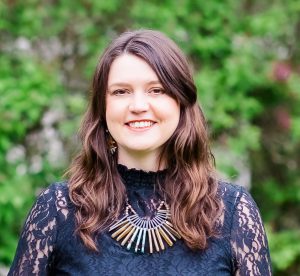
Reyna Jenkyns Appointed as World Data System International Technology Office Director
VICTORIA, BC – 10 July 2023 – The World Data System (WDS), an affiliated body of the International Science Council (ISC), is pleased to announce the appointment of Reyna Jenkyns as the new Associate Director of the World Data System’s International Technology Office (ITO). The WDS aims to promote long-term stewardship of scientific data and ensure universal and equitable access to quality-assured data and data services across various scientific disciplines. Reyna’s extensive experience and expertise make her the ideal candidate to lead the WDS-ITO in fulfilling its mission.
Reyna brings a wealth of knowledge and leadership from her previous role as the data stewardship manager at Ocean Networks Canada (ONC), hosted by the University of Victoria. Throughout her tenure at ONC, she successfully managed a team of data stewards and geographical information system specialists, ensuring the consistent quality of metadata of the observatory infrastructure and datasets. Reyna’s dedication to advancing interoperability and promoting standard formats and schemas has contributed to the seamless integration of data services. In addition, Reyna is also on the Board of CoreTrustSeal, the organization that defines the criteria for research data repositories to belong to the WDS.
As the ITO Director, Reyna will oversee the WDS-ITO’s strategic priorities and projects, working closely with the WDS International Program Office (WDS-IPO) and key stakeholders. She will lead the coordination and integration of Global Research Data Infrastructure (GRDI) components with other organizations, fostering collaboration with DataCite/re3data, ORCID, science publishers, and international programs such as the Group on Earth Observations (GEO) and ISC programs like Future Earth, in addition to continuing her role at CoreTrustSeal. Reyna will also play a vital role in creating and leading technical working groups and supporting the development of technical concepts and standards in alignment with the WDS partners.
Reyna’s academic background, including a Master’s Degree in Ocean Physics from the University of Victoria and a Bachelor’s Degree in Applied Math from the University of Waterloo, equips her with a strong foundation in numerical computation, modelling, and data analysis. Her experience in scientific programming and her extensive co-op terms in engineering and environmental fields further reinforce her multidisciplinary expertise.
The WDS and its partners, including Ocean Networks Canada, the Canadian Astronomy Data Centre, and the Canadian Cryospheric Information Network/Polar Data Catalogue, are confident that Reyna’s visionary leadership and commitment to data stewardship will significantly contribute to the success of the WDS-ITO. Her appointment reflects the WDS’s dedication to promoting open science and enhancing access to valuable research data globally.
See the ITO news announcement at https://wds-ito.org/ito-welcomes-new-director/
For more information about the World Data System, please visit www.worlddatasystem.org.
About the World Data System (WDS)
The World Data System (WDS) was established by the International Science Council (ISC) to promote long-term stewardship and universal access to scientific data across a range of disciplines. It aims to facilitate scientific research by coordinating and supporting trustworthy data services, ensuring the provision, use, and preservation of high-quality datasets, and strengthening links with the research community.
Media Contact: Vinnie Bernabeo, Communications Specialist for the WDS-IPO, vbernabe@utk.edu

20 Jun 2023 | Uncategorized
The Research Council of Zimbabwe (RCZ) is a member of the World Data System that promotes and coordinates research for sustainable development in Zimbabwe. RCZ advises the government on research issues, facilitates collaboration among research institutes and councils, and links with professional bodies and centers of excellence. RCZ’s vision is to be the pivotal leader in steering demand-driven research for wealth creation and the sustainable development of Zimbabwe by 2030. RCZ’s mission is to contribute to the knowledge economy through promoting and translating research results into goods and services. RCZ’s values are innovation, integrity, professionalism and Unhu/Ubuntu, a term derived from Bantu languages which means that they uphold the principles of human dignity, mutual respect and social justice in their work.
Learn more about the RCZ
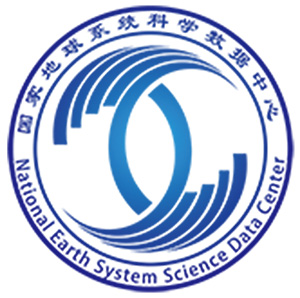
20 Jun 2023 | Uncategorized
WDC for Geophysics, Beijing, supported by the Institute of Geology and Geophysics, Chinese Academy of Sciences (IGGCAS), collects and provides scientific data on geophysics and space environment. It operates two observation systems: Space Environment Exploration System, which monitors various parameters of the earth’s space environment with four stations in China and two in the polar regions; and Seismic Array Observation System, which monitors seismic activity with a network of stations. It also participates in the Solar-Terrestrial Environment Research Network (STERN), which observes the ionosphere, upper atmosphere and the earth’s magnetic field with nine stations of CAS. It hosts more than 110 Gigabytes of parameters data and the mirror sites of the Madrigal Database and DIDBase, which contain more than 9 Terabytes of data. These data are open to the public through its website. WDC for Geophysics, Beijing is a regular member of the World Data System and promotes data sharing and scientific knowledge on geophysics and space environment.
For more info on the World Data Center for Geophysics, Beijing, see their website here.
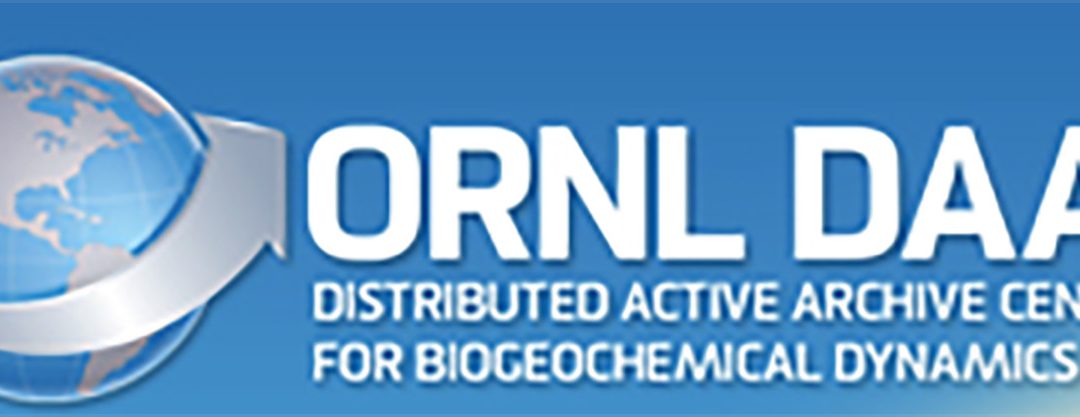
15 Jun 2023 | Uncategorized
Oak Ridge National Laboratory Distributed Active Archive Center (ORNL DAAC)
The ORNL DAAC is a NASA data center that archives and distributes data on terrestrial biogeochemistry and ecological dynamics and is a member of the World Data System. The ORNL DAAC is operated by Oak Ridge National Laboratory in Tennessee, home of the WDS International Program Office (WDS-IPO). The ORNL DAAC’s mission is to provide data services for a comprehensive archive of observations and models to support NASA’s Earth Science. The ORNL DAAC’s goals are to serve as the primary data repository for NASA’s Terrestrial Ecology program and Carbon Cycle Science and Ecosystems focus area, provide ground- and aircraft-based data to assess the accuracy and uncertainty of NASA’s Earth Science missions, work with NASA to develop best practices, tools, and training for data users and providers, and facilitate synthesis and analysis by providing and integrating diverse data.
See ORNL DAAC’s website for more info
